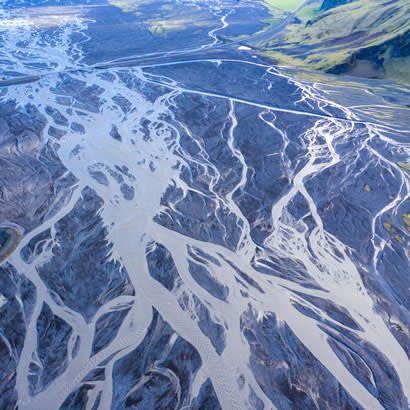
Like the 2001 terrorist attacks on the United States, the current Coronavirus Disease 2019 (COVID-19) pandemic will jar our senses and society in ways we haven’t anticipated.
The coming shift in our collective psyche is not yet clear in anyone’s cloudy crystal ball, but is likely to be profoundly and broadly pervasive.
But even as park and recreation professionals scramble to respond to the abrupt demands of canceling and rescheduling programs and events, sanitizing and maintaining facilities, establishing and enforcing new protocols — while remaining on frontline public service duty in food distribution, coping and cognitive therapies, and many other community interactions and enrichments — we must also invest in some leadership forethought to our futures. Ready and abundant access to our stress-relieving and health-inducing parks and recreational services are needed now more than ever.
What will all this mean to our profession when we return (yet again!) to a new normal?
I’m no prophet (nor even a mediocre soothsayer), but it’s likely the long-term impacts of surviving the worldwide pandemic will rock our world socially, economically, environmentally, relationally, psychologically — in short, fundamentally.
And with this disruptive shift comes a series of thought-provoking considerations to re-establishing our community values and our professional accountability. Among them:
- How do we navigate the inherent conflicts between social distancing and community engagement?
- How do we maintain sanitary outdoor play surfaces, and encourage trust in our best practices?
- What adjustments do we make to our maximum load capacities in aquatic centers and meeting spaces?
- How do we balance park/program equity with new fiscal realities and responsibilities?
- How can we leverage increased interest in personal health for more interaction in nature?
- How can we lessen dependence on governmental funding and operate more entrepreneurially?
- How do we better assist our most vulnerable populations?
- How do canceled school sessions create a new niche we can fill in our summer camps?
- What new partnerships can we create to build more healthy and resilient neighborhoods?
- What new protocols need to be established in our recreation centers, swimming pools, children’s services, large-group events, fitness programs, playgrounds, concessions, trails, visitor centers and other public facilities?
Granted, not all of these questions are newly-arriving with a post-pandemic world, but if we practitioners are to remain relevant and, indeed, grow our industry’s uniquely influential role in the public good in its aftermath, we can no longer kick these proverbial cans further down the road.
Instead, I suggest embracing a new metaphor for a preferred future.
With the onset of the pandemic, thousands of park and recreation agencies suddenly have to deal with new, yet simultaneously similar challenges. Our many responses are like the myriad of rivulets produced by a flooding rainstorm. They’re trickling everywhere at once, exploring ways of forward passage, but ultimately leading in the same downslope direction. If we will share our new ideas, our innovative procedures, and our lessons from failures and successes, our thousands of earnest rivulets will coalesce to braided stream flows that, just a little bit further on, will produce a stronger, broader channel of unified best-practice standards and indispensable public services — restoring and refreshing us all.
I encourage you to share your questions, suggestions and experiences with your peers on NRPA Connect, as well as visit NRPA’s evolving COVID-19 online resource center. Join the fluid movement forward!
Tim Herd, CPRE, is the CEO of the Pennsylvania Recreation and Park Society

